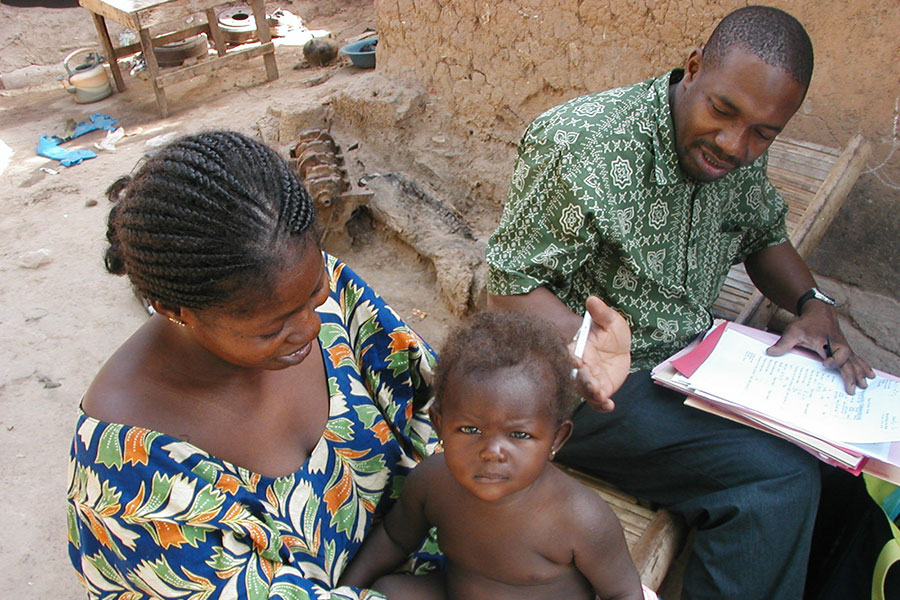August 07, 2017

Researchers from the University of Maryland School of Medicine’s Center for Vaccine Development (CVD) are studying the impact of antibiotic treatment on children from developing countries with severe diarrhea. CVD-Mali is one of seven research centers participating in the study, expected to be complete in 2020. Principal Investigators are Karen Kotloff, MD, Professor and Head of the Division of Infectious Disease and Tropical Pediatrics and Associate Director of Clinical Studies at the CVD, and Samba Sow, MD, MS, Adjunct Professor of Medicine and Director General of CVD-Mali. Mili Tapia, MD, Associate Professor of Pediatrics, is a co-investigator.
This research in Mali is part of a bigger study being conducted in health facilities in seven countries in South Asia and sub-Saharan Africa, involving a total of 11,500 children aged two to 23 months. The research is coordinated by the World Health Organization (WHO) and funded by a Bill & Melinda Gates Foundation Grant. The purpose of the study is to determine whether administering azithromycin reduces mortality and growth faltering among children at high risk of mortality following an acute diarrhea episode. The study excludes children with dysentery, cholera or any other condition that already involves antibiotic treatment.
At present, half a million children die each year as a result of diarrhea. While this is a substantial reduction from the millions that died each year three decades ago, it is unacceptably high. A recent study from the CVD shows that young children from developing countries have an 8.5-fold risk of dying and experience significantly reduced growth in the 90 days following an episode of acute diarrhea compared to children without diarrhea from the same neighborhood. This research will determine whether an antibiotic intervention will prevent these adverse outcomes.
Contact
Office of Public Affairs
655 West Baltimore Street
Bressler Research Building 14-002
Baltimore, Maryland 21201-1559
Contact Media Relations
(410) 706-5260